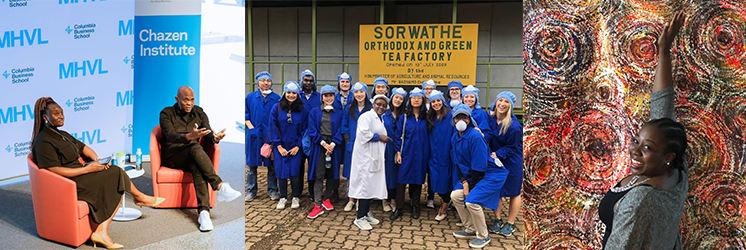
The CBS Africa Business Initiative (ABI) centers on three main goals:
Empowerment
- Why it matters: Entrepreneurship, particularly among women and young people, is a prevalent path to economic empowerment across Africa; with the increase in entrepreneurship, investors around the globe are seeing the opportunity available on the continent.
- Why CBS? CBS has the resources to invest in and empower the abundance of talent on the continent so they may reap the benefits of this increase in investment and build stronger businesses and organizations that benefit the region.
- Programs: EC-Africa, Exec Ed, Management Consulting Labs: Mid-Sized Companies in Africa
Partnership
- Why it matters: Home-grown institutions serving the region are looking across the continent and taking a Pan-African approach to have the greatest impact.
- Why CBS? As a leading educational institution, CBS has the opportunity to partner with institutions on the continent through capacity-building and co-curricular activities which benefits both partners.
- Programs: Africa Business School, Open Startup International
Connection
- Why it matters: A globally connected institution is a stronger one. With the innovation and investment proliferating on the continent, any global institution would benefit from greater presence, knowledge of, and connection to Africa.
- Why CBS? Our students, faculty, alumni, and all stakeholders benefit from a truly global learning and research institution.
- Programs: Study Tours, GIPs, MBA Exchange, Business Cases, Pangea, Alumni Networks, Columbia Global Centers